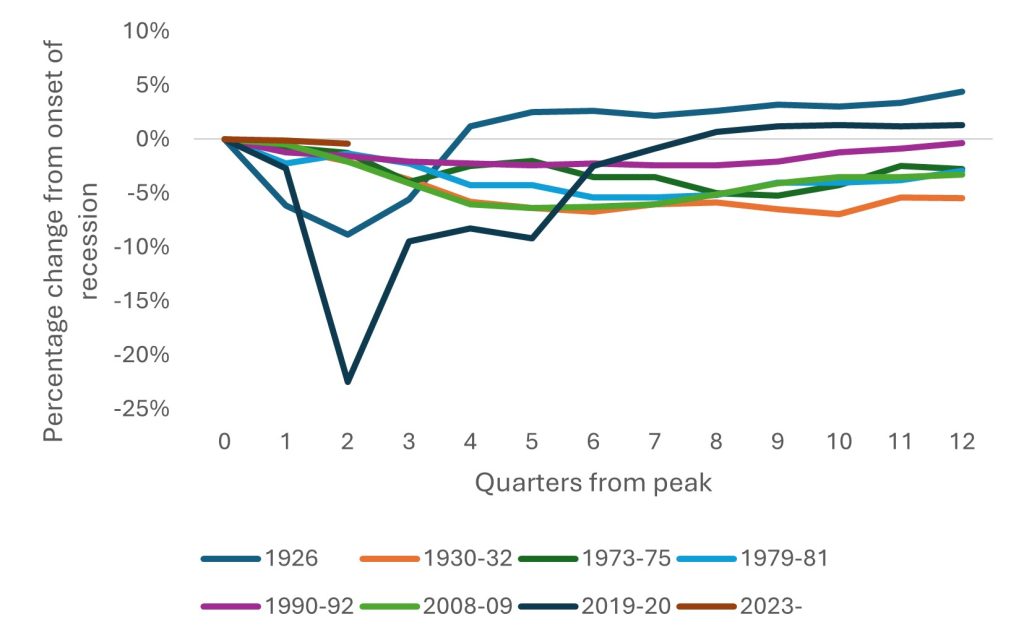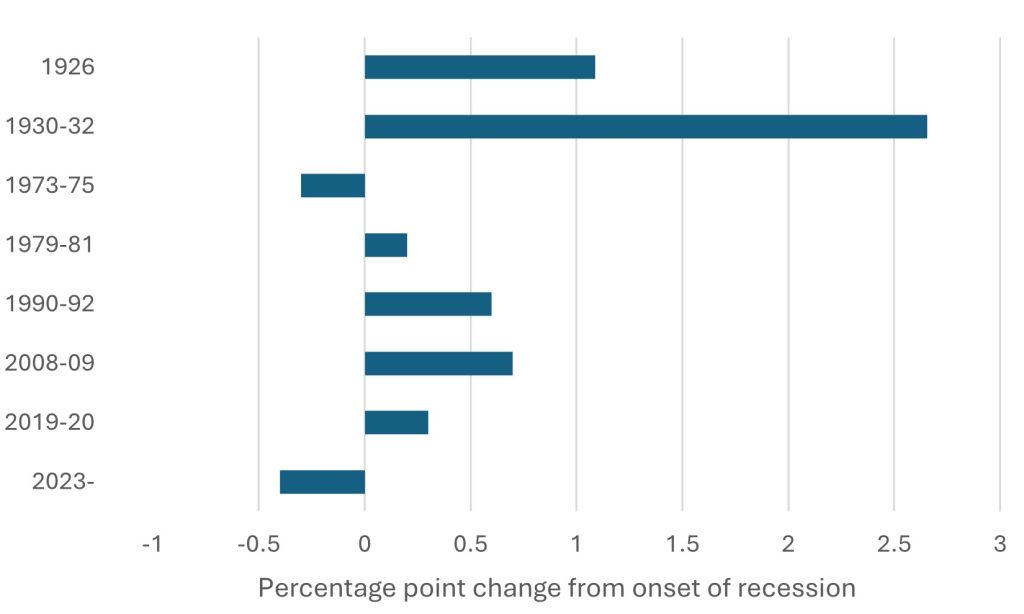What would it take for the UK’s current “technical” recession to turn into a real one? Jason Lennard puts the UK’s economic dip in historical perspective and argues that things might not be as bad as they might seem, as long as consumers and businesses keep their nerve.
The UK economy has slumped into a technical recession. A technical recession is a rough and ready term used by the media and the markets that defines a recession as two consecutive quarters of negative economic growth. However, economists define a recession as a fall in economic activity that meets the three Ds: depth, duration, and diffusion. Is the current recession a technicality or reality?
Beginning with depth, economic activity fell by 0.1% in the third quarter and by 0.3% in the fourth quarter of 2023. Compared to other peacetime recessions in modern British history, no recession has been this shallow after two quarters. Moving on to duration, it is too early to say how long it will last but forecasters, such as the National Institute of Economic and Social Research, expect the economy to return to growth in 2024. Ending with diffusion, the downturn is worryingly widespread as output contracted in 12 out of 20 sub-sectors in the last quarter of 2023.
The Profile of UK Recessions. Sources: Broadberry et al. (2023), ESCoE, and ONS. This figure shows the change in real GDP after the onset of recession.
The takeaway is that we don’t know whether the UK is in a full-scale recession. The early signs are that – as far as recessions go – it has been a mild case. If we look beyond GDP, unemployment is low and falling. That unemployment is not rising at this stage distinguishes this episode from those in history. After two quarters of negative growth, the unemployment rate had significantly increased in all but one peacetime recession in the twentieth and twenty-first centuries.
Even though the current recession seems more mild than others in the recent past, it is not to say that the UK economy is in fine health.
Unemployment and UK Recessions. Sources: Broadberry et al. (2023), ESCoE, and ONS. Notes: This figure shows the change in the unemployment rate two quarters after the onset of recession.
Even though the current recession seems more mild than others in the recent past, it is not to say that the UK economy is in fine health. The low growth since the Great Recession of 2008-09 has left the economy vulnerable to setbacks, of which there has been a stream of negative shocks in recent years, such as Brexit, the pandemic, and the war in Ukraine. A low or no growth economy is more likely to dip in and out of technical recession than a high growth economy.
Can minor recessions turn into Great Depressions? The sliding doors of history suggest that the expectations of households and businesses are key. If the alarm of technical recession triggers a collapse in sentiment, there can be a downward economic vortex. The US Great Depression was a vicious cycle of bad economic news causing gloomy expectations and gloomy expectations causing more bad economic news. A little historical context, which shows that the downturn so far is minor, can help to temper the gloom.
All articles posted on this blog give the views of the author(s), and not the position of LSE British Politics and Policy, nor of the London School of Economics and Political Science.
Image credit: AbrosiniV on Shutterstock









